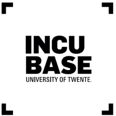As a graduate of the Master’s in Biomedical Engineering with a specialisation in Biorobotics, you can look forward to an exciting career as a product developer, R&D engineer or scientist, to name a few examples. Another option is to continue with a PhD- or EngD programme. Or you could become an entrepreneur and start up your own business.
Type of degree
When you have completed this Master's with the specialisation in Biorobotics, you will receive a Master’s degree in Biomedical Engineering. Also, you can title yourself Master of Science (MSc). Your specialisation will be mentioned specifically on your diploma supplement, highlighting your specialised knowledge and skills in the field of biorobotics.
Job opportunities
As a graduate of this specialisation, you know exactly how to translate clinical needs and wishes into technical requirements and concepts. In addition, you have in-depth knowledge and skills related to mechatronic design and control of medical robots, human-machine interaction and biomedical science. With this expertise, you will be well-prepared for positions in the development of mechatronic medical devices that directly interact with humans. You can fulfil positions such as product developer, R&D engineer or project manager at a medical device company, but you can also pursue a more academic career and work as a scientist within a university or an (academic) hospital or revalidation centre, for example.
Whichever career path you choose, there’s a great variety of organisations that are continuously looking for experts in the field of biorobotics. From medical device or robotics companies such as Demcon, Siemens, Laevo, Skelex, GE Healthcare, Movella, TMSI (Twente Medical Systems International), as well as prosthetics/orthotics companies such as Ottobock, Össur, or rehabilitation robotics companies like Hocoma, Motek or Hankamp Rehab, to clinical organisations such as MST, Radboud UMC, UMCG Groningen, Sint Maartenskliniek or research centres such as Roessingh Research & Development or TNO.
Start a business
At UT, we highly encourage entrepreneurship. This University is the birthplace of a large number of high-tech spin-off companies that market developed technologies. You could use your research or even inventions stemming from your master’s thesis and/or your PhD research to start up your own innovative company as well! UT has been voted the most entrepreneurial university in the Netherlands four times in a row. We have a unique approach of putting scientific knowledge to practical use and turning our expertise and yours into solutions that people and society actually need. As a catalyst for meaningful entrepreneurship, we offer you the Novel-T foundation and their start-up hub Incubase on campus.
Former students have gone before you. For example, IamFluidics was started up by a BME graduate, just like Lipocoat. Will you be next?
Post-master opportunities
Instead of pursuing a professional career right away after obtaining your Master’s degree, you can also opt for a more academically oriented career, by pursuing a PhD or EngD. An EngD programme is more practically oriented, aligned with the direct problem-solving or design needs of the industry, whereas a PhD programme is more focused on research. You can follow both types of programmes at the Twente Graduate School (TGS).
Continue as a researcher: obtain a PhD
A PhD (Doctor of Philosophy) involves spending four years of in-depth studying and researching in a particular area. You can do this within one of our research groups or in one of our structured PhD programmes. An integral part of a PhD is writing your PhD thesis at the end and then presenting and defending your research in public. Obtaining your PhD earns you the title of Doctor (Dr).
Follow an EngD programme
Other than obtaining a PhD, you can also opt to follow an EngD programme after graduation. Such a programme usually takes two years and is aimed at you becoming a high-level technological designer. Upon successful completion, you will receive a certified diploma and the academic degree title, Engineering Doctorate (EngD).

